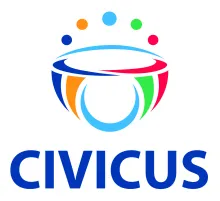A lot has happened since the UN Secretary-General’s High Level Panel on Post-2015 coined the term ‘data revolution’ in 2013, describing the need to harness the exponential increase in the volume, quality, and sources of data to successfully deliver the new sustainable development agenda. In particular, we’ve seen an international group of experts put forward its vision for mobilising the data revolution, along with the Cartagena Data Festival where ideas, innovations and partnerships for the agenda were further fostered.
But it is the launch of a new Global Partnership for Sustainable Development Datawhich represents the most substantive effort yet to see the data revolution move from a concept to a reality for stakeholders across the world. Following its launch back in September of 2015 during the annual meeting of UN General Assembly, the diverse group of governments, international institutions, civil society organisations, businesses, academics and myriad of other actors involved in the Global Partnership have been busily working to define what it aims to achieve, and have now put in place many of the structures and activities required to get there.
Poor data is an important factor in bad decision-making and weakens accountability, thereby limiting our ability to tackle pressing issues such as poverty and hunger, environmental protection, and humanitarian crises. One of the main ideas behind the Global Partnership, therefore, is the need to better link the growing number of data producers and users to provide us with the detailed, comprehensive information required to effectively drive sustainable development forward. Recognising that no single stakeholder can propel progress alone, the Global Partnership wants to foster unprecedented cross-sectoral coordination and collaboration across the full gamut of sustainable development actors, from citizens to statistics professionals.

WHAT WILL THE GLOBAL PARTNERSHIP DO?
This Global Partnership aims to be an inclusive, comprehensive platform that will support all sustainable development stakeholders by promoting:
- Standards and policies that bolster global, national and local data initiatives
- Data generation that can help to fill key data gaps, especially for monitoring the SDGs
- Expanded data access for policymakers, civil society and citizens
- Data use to improve development outcomes, through peer learning and catalysing financial support for capacity building on data use
It will do this by convening large and specialised events and initiatives, pushing for solid political commitments and action, coordinating capacity building efforts, mobilising new resources and facilitating peer learning, as well as promoting and helping to scale up innovations.
Several distinct but closely linked working groups are driving these activities forward, with the support of a small Secretariat hosted by the United Nations Foundation.
WHY IS THE GLOBAL PARTNERSHIP A GOOD THING FOR CIVIL SOCIETY?
New technologies offer exciting new ways for citizens and their organisations to generate and use data in democratic and creative ways. The Global Partnership can provide them with a mechanism for both navigating through and benefiting from the Data Revolution.
- It can directly support citizens and civil society to become more effective, more coordinated data generators, as well as helping to ensure that this data is actually used to empower individuals and influence decision making on sustainable development.
- Civil society are also huge users of data – increasingly using it to drive advocacy, accountability and programming efforts. The Global Partnership can help civil society unlock more resources to build their capacity to do this.
- It will also provide civil society and other non-governmental data producers with unique opportunities to collaborate with national statistical offices and feed into official SDG monitoring efforts. Civil society also has an opportunity – by engaging as a valued and equal stakeholder in the Global Partnership – for continuing to push for data to be open and accessible to all.
OUR ROLE IN THE GLOBAL PARTNERSHIP
These are certainly big aspirations and there’s much work to be done before civil society organisations will begin benefitting from these efforts. To help ensure civil society has an equal seat at the Partnership’s highest decision making table, CIVICUS has pledged to be an anchor partner in this process and will therefore be working via DataShift and other linked efforts, such as a global consultation (including an event at ICSW 2016 in April), to ensure that civil society and citizen-generated data are recognised as integral components of the data revolution and those producing it receive the necessary support to build upon and better coordinate these efforts.
The Global Partnership must resonate with civil society at all levels – national, regional and global – so that civil society becomes an active and invested partner. CIVICUS will therefore be engaging with organisations from far and wide on the Global Partnership, also helping to identify additional civil society partners to come on board.
For more information, please contact the DataShift team at [email protected].
